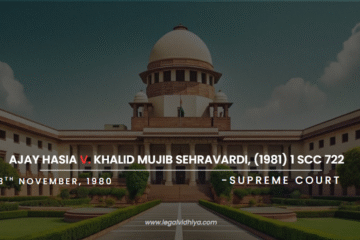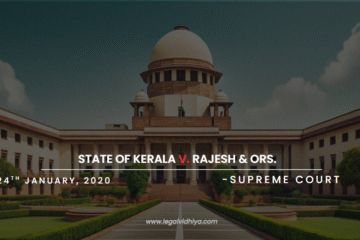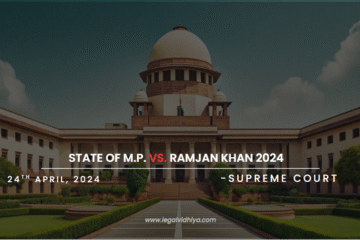
| Citation | (1881) ILR3ALL221 |
| Date of Judgement | 3 March 1880 |
| Court | High Court of Judicature at Allahabad |
| Case Type | Adequate Consideration: Essential for a Valid Contract |
| Appellant | Durga Prasad |
| Respondent | Baldeo |
| Bench | Hon’ble Justice Pearson, Hon’ble Justice Oldfield |
| Referred | section 2(d) of the Indian Contract Act, |
Facts of the case
- The District Authority of Etawah approached the complainant with a plan to establish a market close by.
- The plaintiff established a two-grain market in Etawah, one known as Hume Ganj and the other as Ram Ganj, and he had extended a significant amount of rupees for constructing shops and purchasing land for the same.
- This was done to satisfy the aforementioned request and win the defendant’s trust. Defendants hired the lookout shops, worked as commission specialists, and even received some commission from the dealers in exchange.
- By agreement of both parties, the commission due to the plaintiff in 1875 was set at 6 annas, and the defendants signed a contract to that effect. The plaintiff had requested that only commission payments be sent on a regular basis, thus this was done in accordance with his desires.
- After being advised by the Municipal Corporation that he should have the commission agreement registered, the plaintiff took the advice seriously and made arrangements to have the agreement registered in order to make it legally binding and have it verified for the purposes of their security with regard to receiving the commission that was promised to them.
- According to Indian law and the Indian Contract Act, 1872, both parties to an agreement must certify that they have entered into the agreement and have given their complete approval for the agreement’s applicability in order for it to be registered.
- The problem started when the defendant refused to assent to the agreement’s registration upon the plaintiff’s request and denied that they were required to sign the agreement in response, which is when the dispute first arose.
- Due to this, the plaintiff was required to file a lawsuit to establish the basis of his rights. As a result, he sued the Respondents in the lower court to determine whether the understanding could be enforced. He then filed an appeal in the high court due to the lower court’s unsatisfactory response.
Issues
In this case, there were two major issues such as
- If the aforementioned agreement is a contract that is enforceable by law,
- If the aforementioned contract can be enforced by the law
Judgement
The claims of the plaintiff were denied, and the case was dismissed by the judge. According to section 2(d) of the Indian Contract Act, 1872, the arrangement was rejected as a contract because there was no significant and well-known consideration involved in this case. According to section 25 of the Act, the transaction was deemed defective because there was no consideration. The judges also determined that there was no option for an appeal because the Act stipulates the significance of consideration as a necessary component for a contract, and the appeal was rejected by the court.
Conclusion
The aforementioned case is based on section 2(d) of the Indian Contract Act, 1872, which discusses in part: “When at the desire of the promisor, promisee, or any other person has done or abstained from doing or does or abstains from doing, or promises to do or to abstain from doing something, such act or abstinence, or promise is called a consideration for the promise.”
In this instance, the plaintiff accepted the market’s construction plan as payment for the commission that the defendant was going to give them. The defendant countered that the plaintiff’s reference to the commission had nothing to do with the market’s structure because he has never been motivated to do so. Furthermore, the deal cannot be deemed to be a legitimate contract because no consideration was provided.
The plaintiff’s complaint was founded on the defendant’s unwillingness to offer a commission based on the market’s structure, which can be seen. The defendant is not responsible for paying the commission to the plaintiff because the building was built without his involvement.
Written by sushmita singh an intern under legal vidhiya.




0 Comments